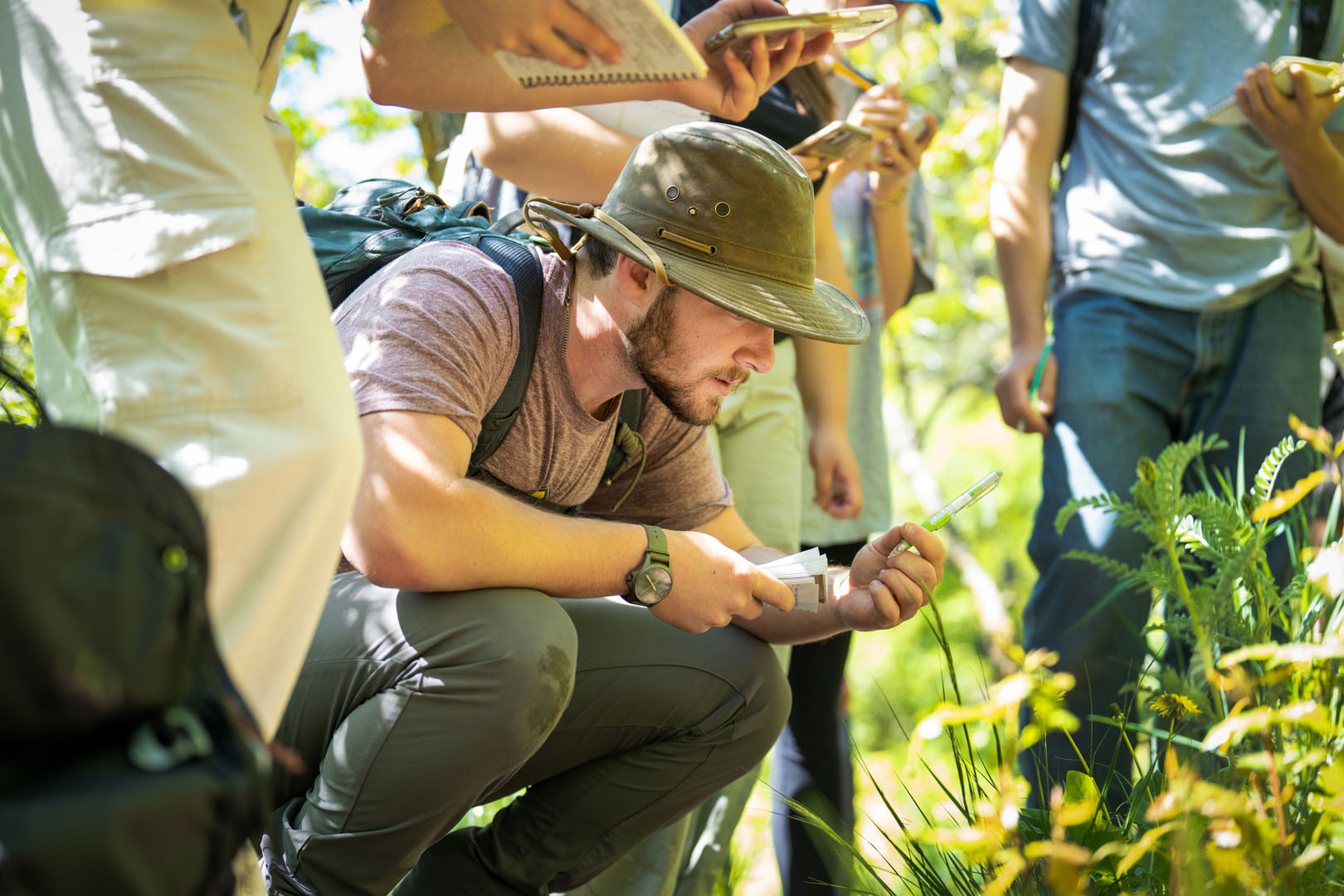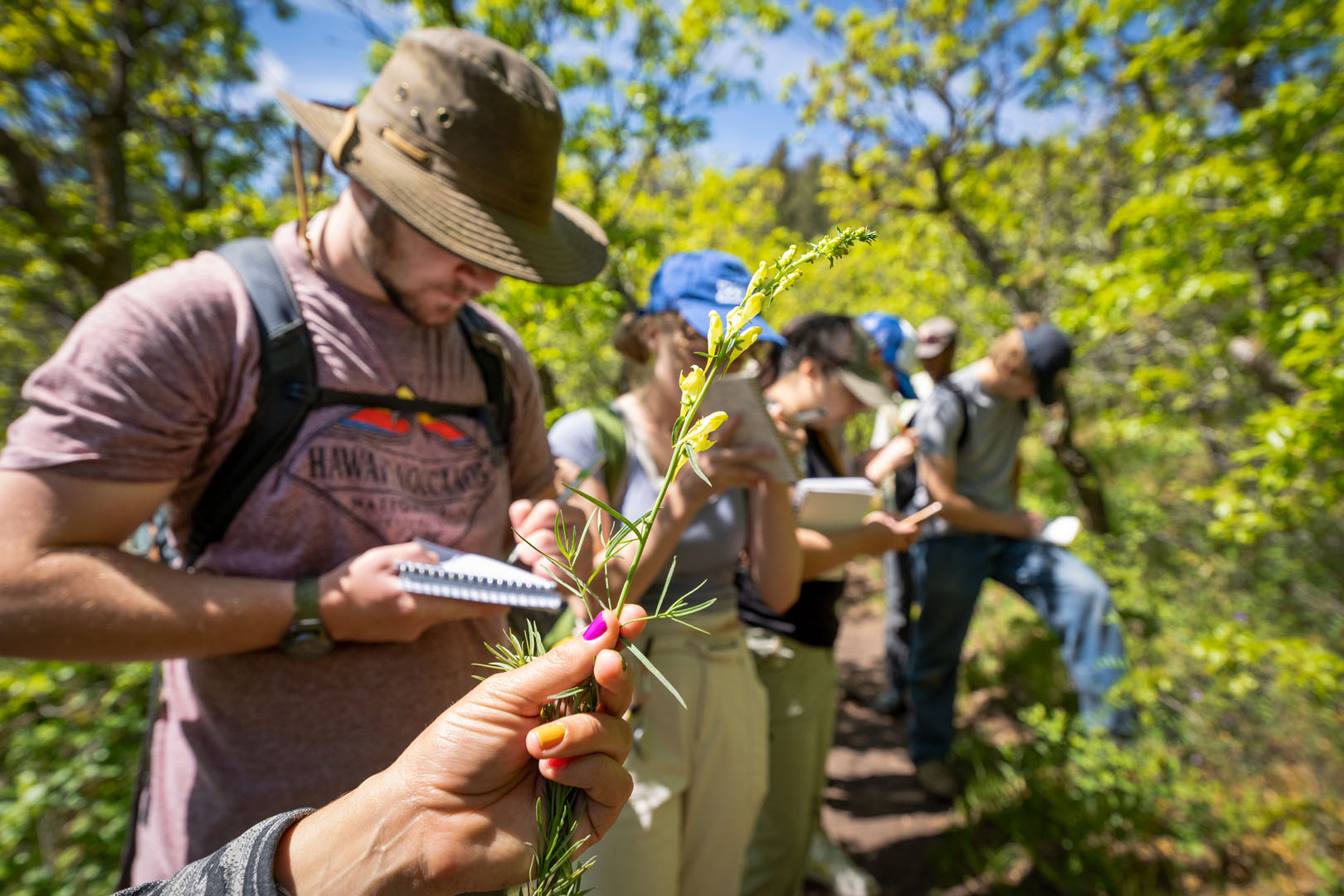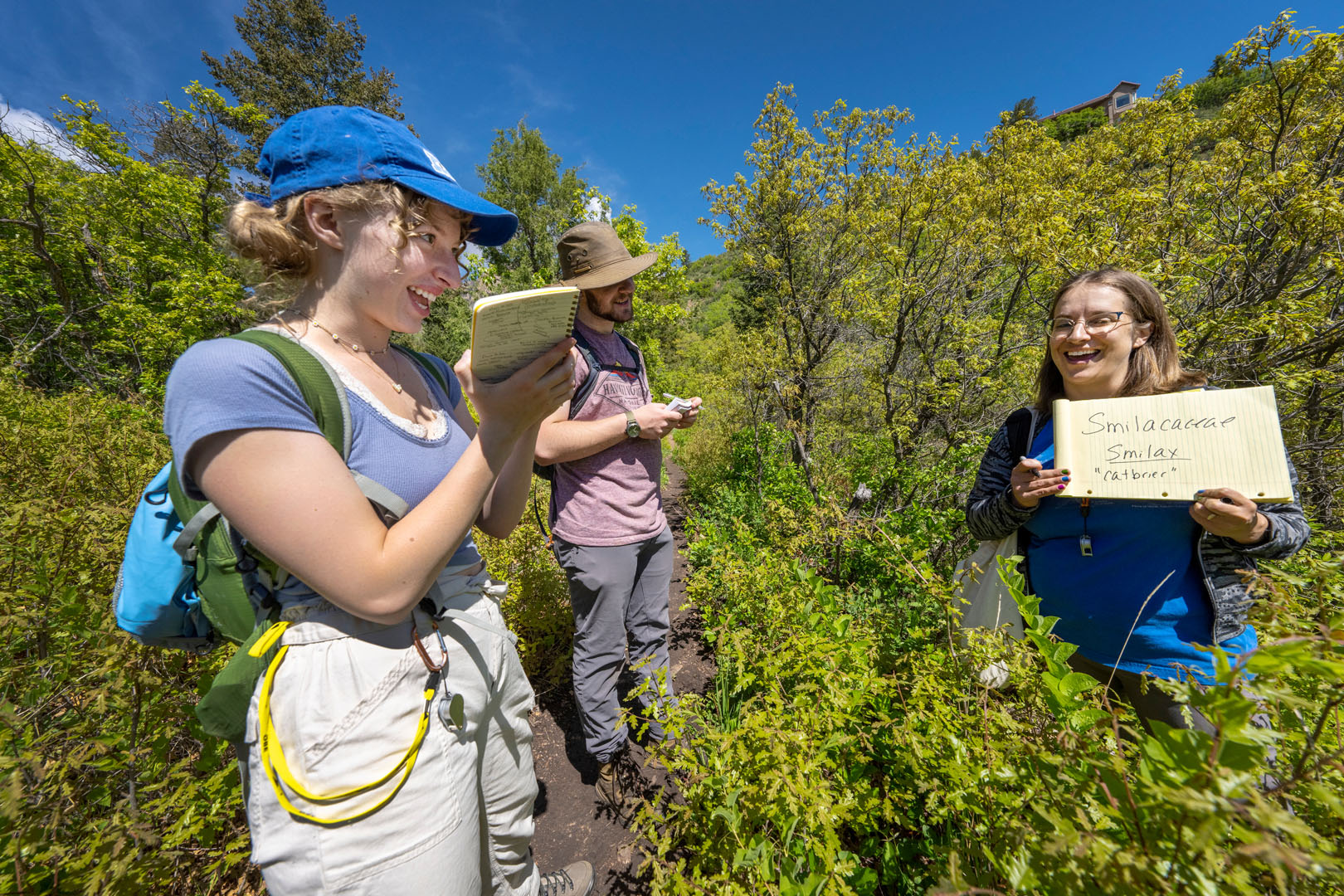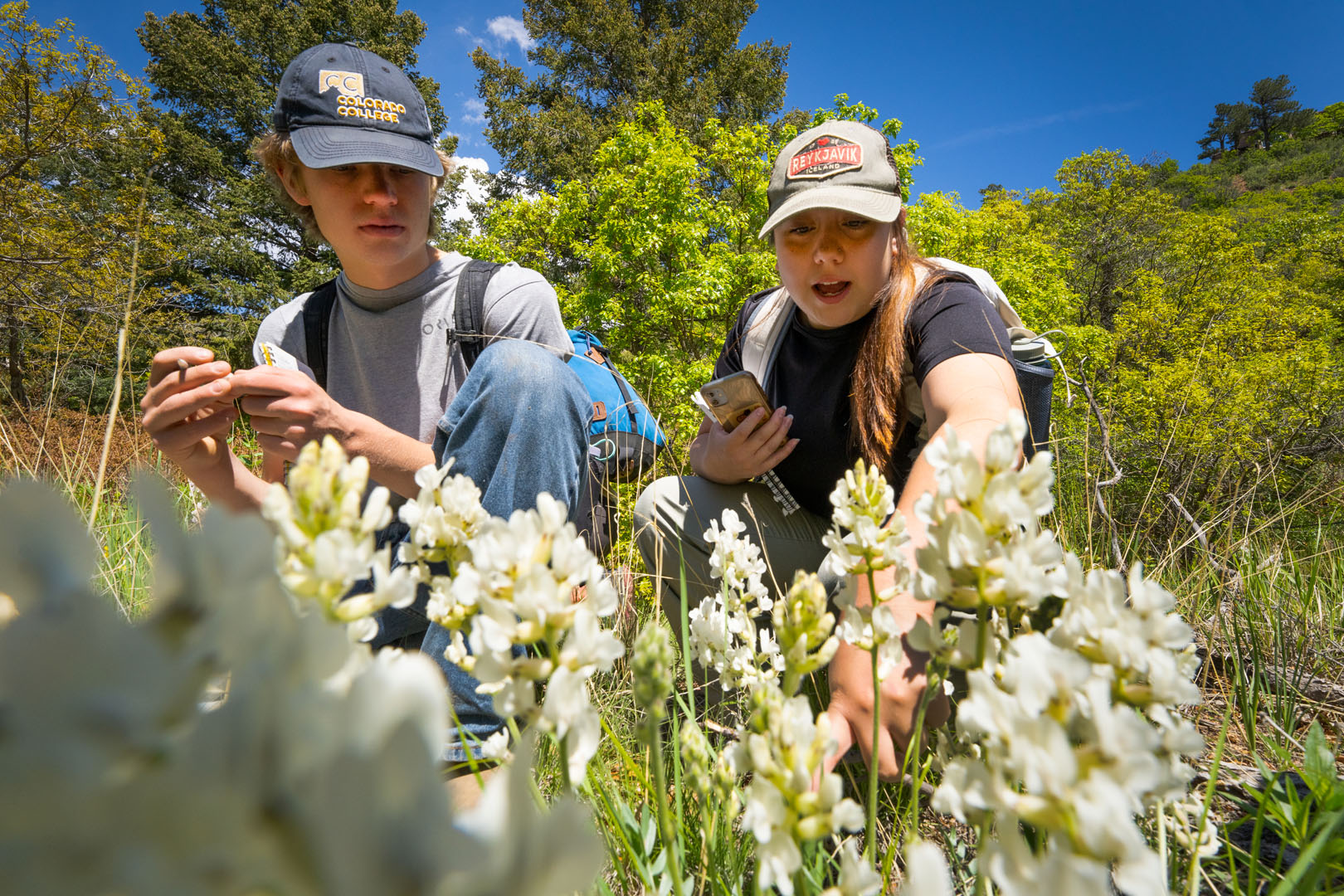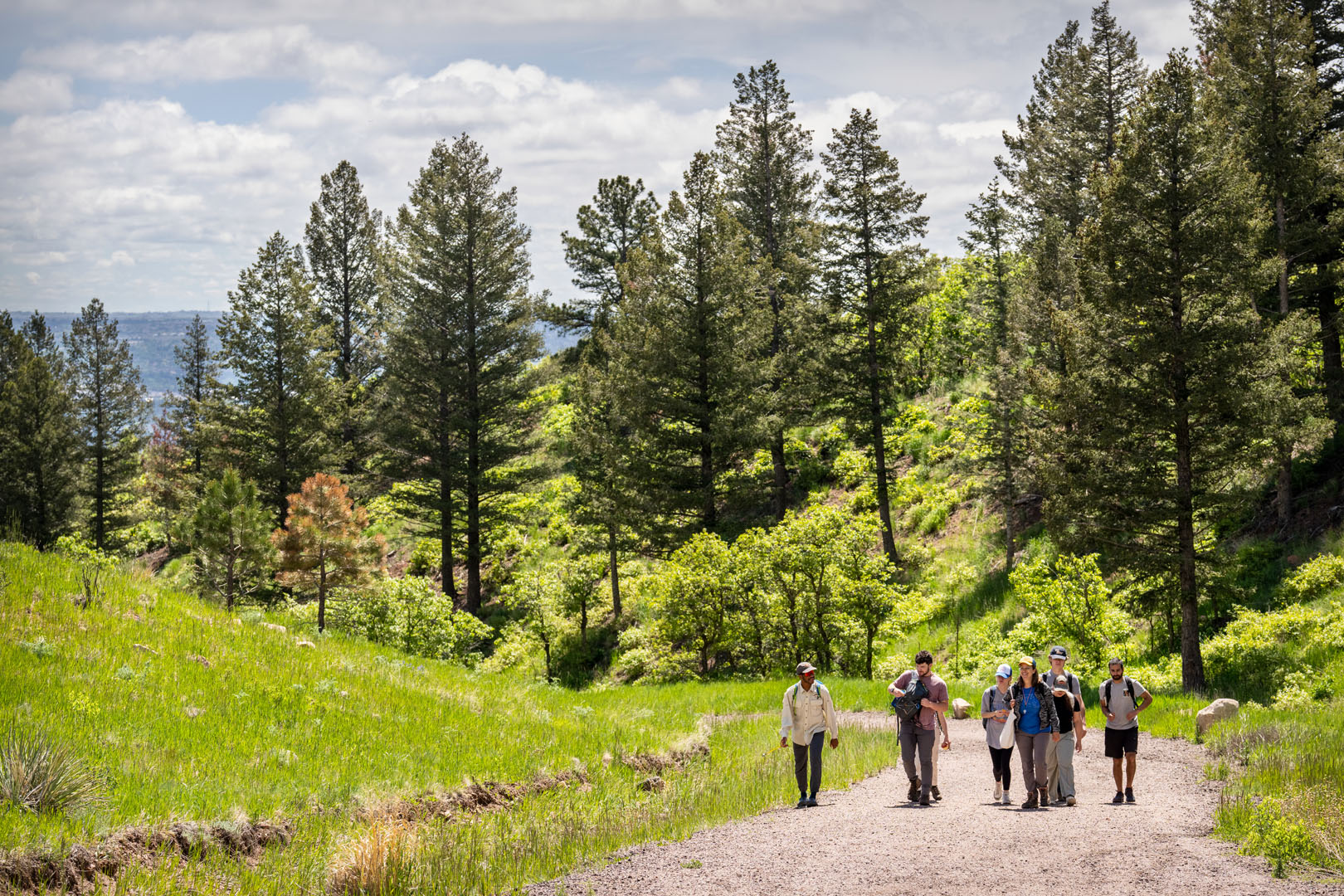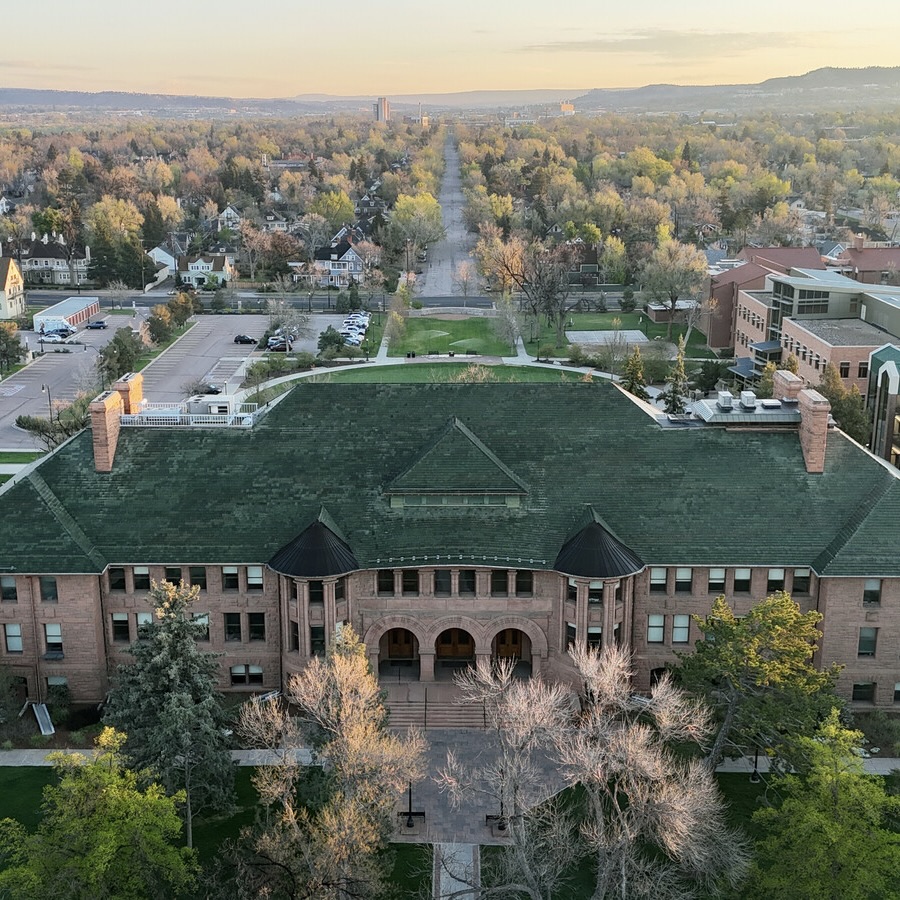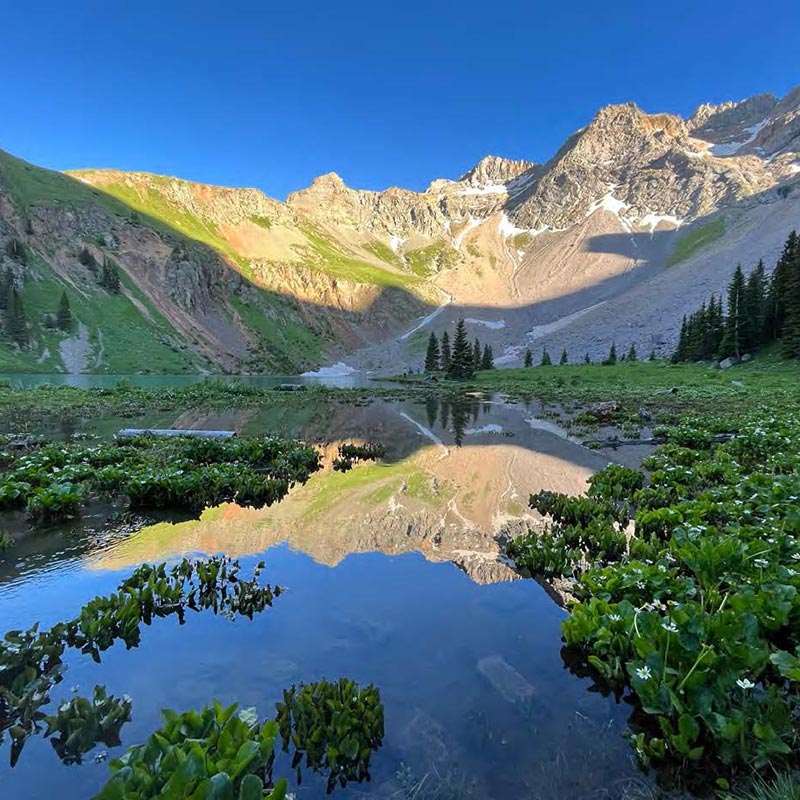While most colleges and universities can teach a great field botany class, Rachel Jabaily, associate professor in the Organismal Biology and Ecology and Southwest Studies Departments, believes being in Colorado and teaching on the Block Plan is what allows her students to go that extra mile and experience real, career-preparing field work.
For this year’s Block A course, there were 14 field trips planned in the 18-day class, which can be attributed to both the Block Plan and being in such a great, wilderness-adjacent location. Students took day trips to numerous incredible outdoor spaces in Colorado, including Cheyenne Canyon, Garden of the Gods, Denver Botanical Garden, and Blodgett Peak. The class also spent two days exploring Phantom Canyon and Rocky Mountain National Park, near Fort Collins in northern Colorado.
“Colorado Springs, in particular, is a great location for this class because we are at an intersection between the short-grass prairies and foothills, and we have access to the mountains,” says Jabaily, who added that CC’s Baca campus also gives her class a lot of access to other habitats. “Just with the day trip portions of the class, we can access so much botanical diversity in Colorado.”
“The accessibility to incredible botanical areas from Colorado Springs makes it convenient for us to observe and study a remarkable variety of plant species within a condensed timeframe of just three and a half weeks,” says Josh Felton ’22, who served as the paraprofessional for this class and for the Organismal Biology and Ecology Department. “Colorado's location offers a unique advantage to this class compared to being in a different state. The presence of every ecological life zone right in our backyard, as is the case in Colorado Springs, allows us to explore a wide range of diverse habitats, each with its own distinct plant communities.”
Being in Colorado, combined with the incredible opportunities offered with the Block Plan, gave the seven students in this class the opportunity to do hours upon hours of field work, which is what students need for this type of learning and career path.
“I redesigned this class to be as field-focused as possible because a lot of the jobs my students become ready to have, even after just taking this class, are field-based technician jobs,” says Jabaily. “This class is as authentic as I can make it, where we are out in the field in all kinds of habitats, all kinds of weather, and observing optimal to suboptimal plant life stages.”
Prior to CC, Jabaily taught a field botany class in Tennessee and says it was much harder to get access to large natural areas.
“Having such easy access to these remarkable natural spaces enhances our learning experience and enables us to immerse ourselves in different ecosystems, ultimately broadening our understanding of plant diversity and ecological dynamics,” says Felton, who majored in organismal biology and ecology at CC. “In essence, the unique geographical advantage offered by Colorado amplifies the richness and depth of our class, facilitating a comprehensive exploration of various habitats and their associated plant communities.”
The class spent three days at CC’s Baca campus, where they focused on creating collections for CC’s herbarium, the Carter Herbarium of Colorado College, or COCO, where over 12,000 press dried plants are stored. Prior to traveling to Baca, the students explored the existing specimens at COCO.
“What I really want the students to take away from observing specimens in COCO is the importance of these specimens as being time machines that take us back to a different time and place,” says Jabaily. “The students learn what the plant was like during that time-period, and experience utilizing data we can observe from the collection.”
In addition to gathering collections for COCO, Jabaily and her students collected specimens to display at the Baca campus, which will allow future CC classes to see and learn about different plant species living in the Sangre de Cristo Mountains and San Luis Valley areas.
Alejandra Mendoza ’24 and Lucie King ’24 worked together at Baca collecting, keying, and pressing different plant species. They ended up collecting three samples of about seven different varieties of specimen that are set to go to the COCO herbarium, the Baca campus, and the Denver Botanical Gardens.
“It wasn't until we labeled our first press that I felt the excitement and understood the importance of the work we were doing,” says Mendoza, an environmental studies major. “Our little label became ‘King and Mendoza 001,’ which felt so special because I knew that our work could be used in the future for all kinds of research.”
In the years and decades to come, people will be able to use what these students gathered for their own research.
“Something I am learning is that botany requires more than just your eyes to truly understand and distinguish plants from each other,” says Mendoza. “Using all five senses has really changed the game in terms of how I go about identifying a species.”
Mendoza’s favorite part of the class was the fieldwork, which she says really reenforced her ability to use all senses to identify a plant species.
“We only have three days in the classroom for the entire block,” says Riley Kadis ’26. “The fact that this course is essentially going for hikes and learning about the plants and relationships we come across is my ideal academic experience. Our last field trip, a two-night trip to the Baca campus, provided the opportunity for us to learn to take, identify, and document plant samples, and is a skill I will use as a hobby, if not professionally, for the rest of my life.”
Kadis, an organismal biology and ecology major, says the biggest lessons he learned are the characteristic traits of different major plant families, as well as how to practice botany in a field setting.
“Once you begin to understand the forces that shape the form and distribution of biodiversity you never view the world the same way again,” Kadis says.
Mendoza and Kadis both appreciate how the Block Plan allowed the students to participate in so many field-based activities, which wouldn’t be possible on a semester-based schedule.
“The Block Plan really enables long field trips and overnights,” says Jabaily. “The Block Plan is why the class can take five-to-six-hour long day trips, as well as several, multi-night field trips.”
Field Botany requires the Biology of Plants prerequisite and meets CC’s Critical Perspective: Scientific Investigation of the Natural World lab.

